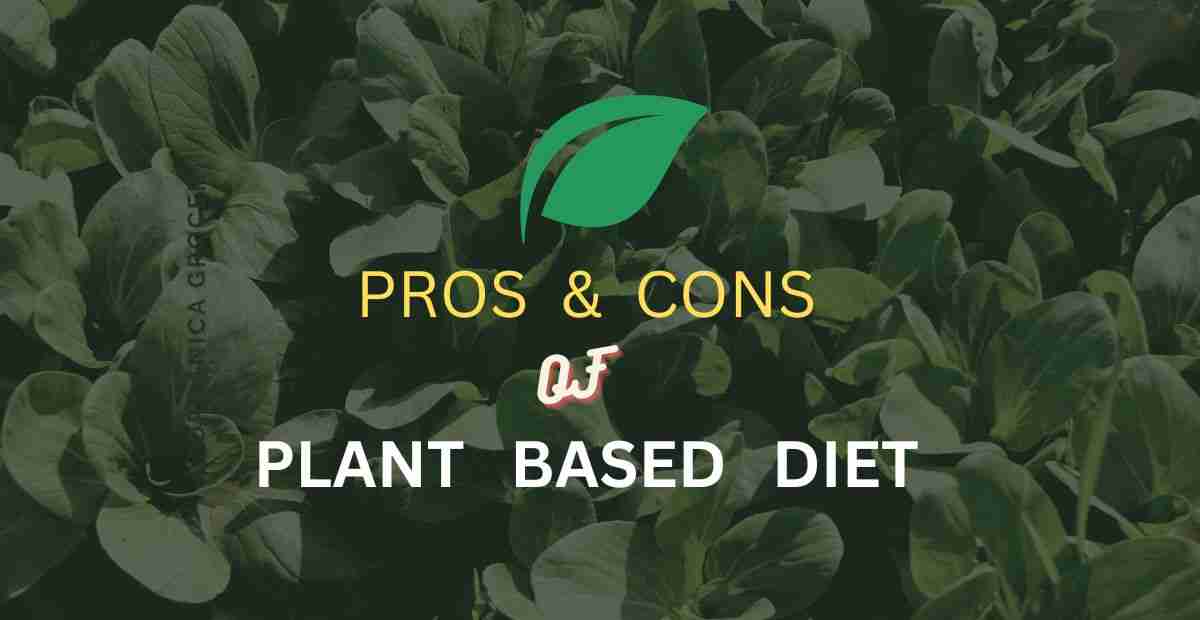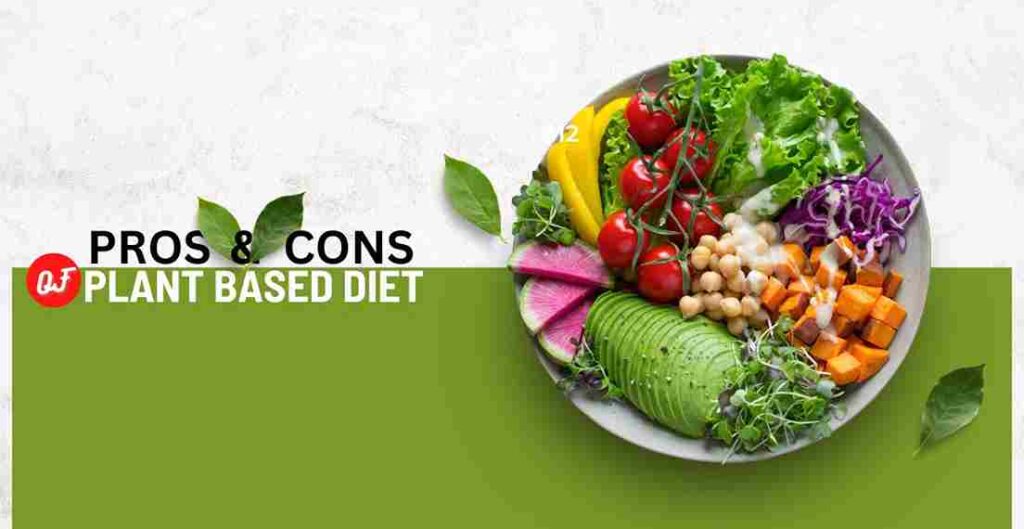Have you heard the term plant-based diet? Have you wondered what is it? A plant-based diet is said to be only about plants, there are no animals or animal products involved. Fruits, vegetables, nuts, and whole grains are called plant-based diets. Animal meat or animal products are excluded from this diet. Some may include dairy and egg but generally, they too are avoided.
So what are the pros and cons of a plant-based diet? We try to analyse it in this article.
The Basics of a Plant-Based Diet
A plant-based diet is a concept that strictly focuses on consuming whole, unprocessed plant-based foods. This includes fruits, vegetables, whole grains, nuts, and seeds. A plant-based diet can be anything either vegetarian or without even dairy products like in a vegan diet.
Benefits of a Plant-Based Diet
There are many benefits to eating a plant-based diet. For one, plants are a great source of fiber, which can help keep you regular and may reduce your risk of heart disease and other chronic conditions like stroke and cancer.
Another benefit of plant-based eating is that it tends to be lower in saturated fat and cholesterol than an animal-based diet. Thus it helps in lowering cholesterol, blood pressure, and blood sugar levels. Additionally, plant-based diets tend to be high in fiber, which can help to keep you feeling full and can aid in weight loss.
Plants are also a good source of antioxidants, which can protect your cells from damage and may reduce your risk of some chronic diseases.
How to Transition Into a Plant-Based Diet
How to Change to a plant diet. The switch to a plant-based diet should be done gradually. First, start with small quantities, and if you find it interesting are you are loving it then you should gradually increase the quantity. In the first week replace meat or animal product for one day.
Different plant-based food could replace meat for a few meals. Try new recipes from cookbooks that are available or use online resources to experiment. If you can find a companion, from the family or a friend then it would be a more enjoyable process. One has to figure out his or her own diet because what works for one may not work for the other. Don’t be harsh if things are not working, it takes time, so be patient.
Here are Some Pros and Cons of a Plant-Based Diet
PROS
- Vitamins, minerals, antioxidants, and phytochemicals, which support health and save against disease, are abundant in plants.
- A plant-based diet can lower cholesterol, blood sugar, and blood pressure as well as lower the risk of developing heart disease, stroke, and type 2 diabetes.
- Plants are a low-calorie, high-fiber diet that can aid in weight loss and weight maintenance. Some cancers, including ovarian and breast cancer, can be prevented with a plant-based diet.
- Numerous chemicals found in plants have anti-inflammatory properties that can help lower the chance of developing arthritis and other inflammatory illnesses.
- By encouraging the growth of helpful gut bacteria and limiting the expansion of bad bacteria, a plant diet can enhance gut health.
- Plants are a sustainable and renewable food supply that can lessen the effects of climate change.
- By avoiding meat and dairy products, which are frequent sources of foodborne germs, a plant-based diet can lower the risk of foodborne infections.
- Plants are a moral and humane dietary option because they don’t require the killing of animals.
- There are many delicious and filling plant-based foods to pick from, making a plant-based diet possible.
CONS
- Since plants are not as easily accessible as animal products, a diet high in plant-based foods may need more preparation and effort.
- Given that plants are frequently more expensive than animal products, a diet high in plant-based foods may be more costly than one high in animal-based foods.
- A plant diet may be deficient in some elements, such as vitamin B12, omega-3 fatty acids, and iron, which are present in animal products.
- If you are not used to eating a lot of plants, a plant-based diet may be challenging to maintain because they might be less pleasant and satiating than animal products.
- Some people may experience bloating, gas, or diarrhea as a result of a plant-based diet.
- Some individuals might not consume enough protein from plants.
- To make sure you are getting enough of all the nutrients from a diet based on plants, you might need to take supplements.
- A plant-based diet might not taste good to some people. Some individuals might miss eating meat or dairy.
- A diet that only consists of plants might not be as socially acceptable as one that also contains meat or dairy.
How to Maintain a Vegan Diet?
You can take a few steps to ensure that you follow a plant-based diet. First, make sure you have access to a range of plant-based foods. You’ll be less likely to get bored with your diet this way and are more likely to remain with it.
Second, make a few plant-based recipes that you truly enjoy frequently. You’ll always have something delectable to eat thanks to this, which will help you stay on track.
Finally, share your plant-based diet with your loved ones and solicit their support. By doing this, you’ll have a built-in system of support to keep you on track.
The Healthiest Plant-Based Diets
Depending on the items included, a variety of diets based on plants can be beneficial. Numerous fruits, vegetables, whole grains, legumes, nuts, and seeds may be present in some wholesome diets based on plants. These diets might also be reduced in added sugars, saturated fats, and processed carbs.
Conclusion
One of the most important benefits of a diet based on plants is it lowers the risk of diabetes. It helps in digestion and weight loss. when you select a plant diet for yourself, make sure that you’re getting all the nutrients. A general plant diet will not work for everyone. Consultation with a qualified dietitian or a healthcare professional should be made before starting a plant-based diet
FAQ
QUE Can I get all the nutrients I need on a diet based on plants?
ANS Yes, The diet should be formalised after consulting with a dietitian. He would recommend a diet keeping in mind all the necessary nutrients required by the body to function normally. The best methodology is to use a wider range of plant-based food like vegetables, fruits, nuts, etc.
QUE Can I get enough protein on a plant-based diet?
ANS If one takes a wider variety of variety of plant-based food like nuts, seeds, fruits whole grains, or soy for that matter then the body will be able to get the required amount of protein
QUE Can a vegan diet be followed by anyone?
ANS People with medical issues like specific allergies or intolerances, pregnant women, or kids who might need extra nutrients to grow are among those who cannot benefit from a plant diet. As a result, they won’t be able to consume a plant-based diet. Consultation with a dietitian or a medical professional is the recommended course of action.


